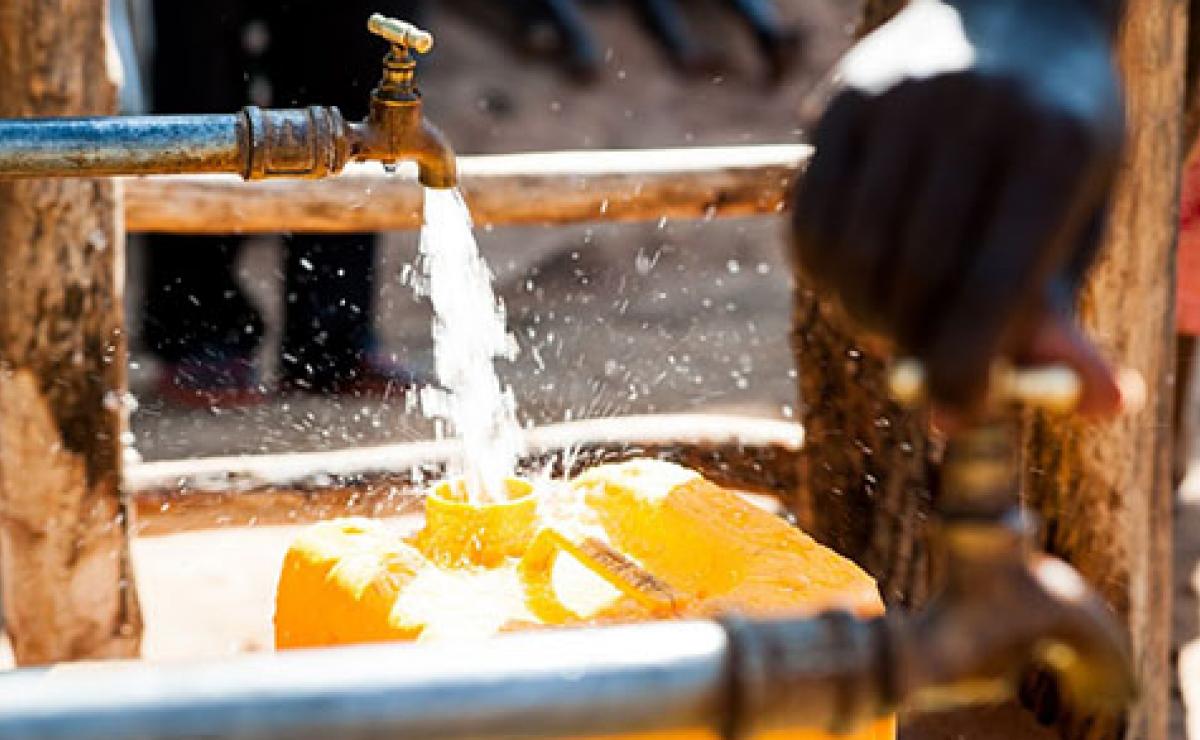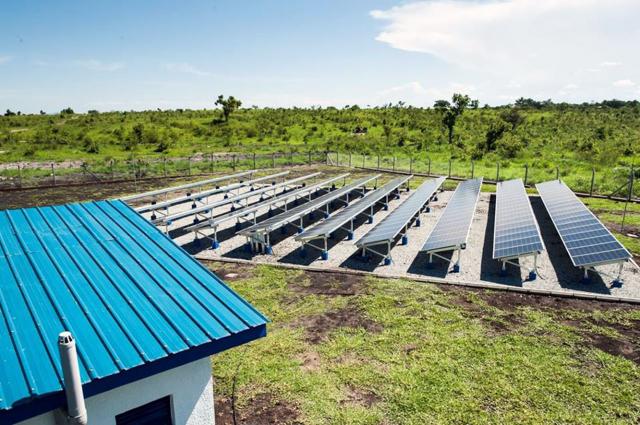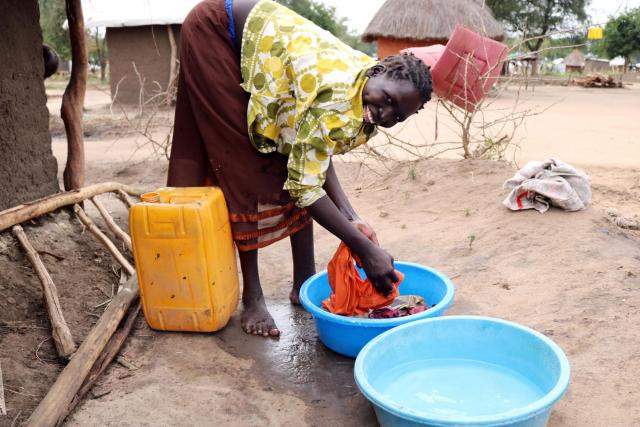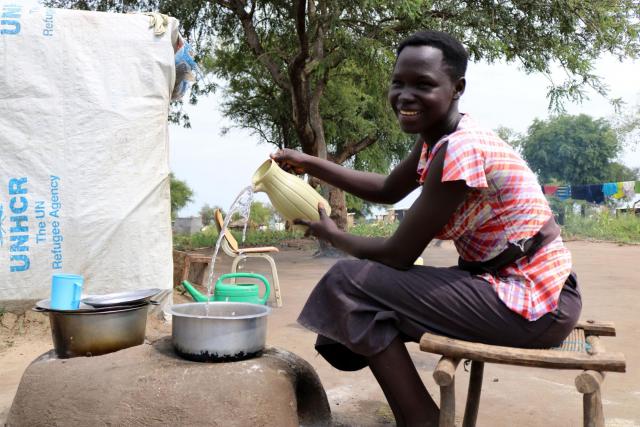LWF phases out water trucking in Palorinya settlement, establishes sustainable water sources

Thousands of South Sudanese refugees in Palorinya settlement now have access to enough clean and safe water. Since the refugees’ most basic means of survival is clean safe water, the Lutheran World Federation (LWF) prioritizes extending it to them in Uganda’s settlements.
Since the opening of Palorinya settlement in December, 2016, one of LWF’s major goals there was to establish sustainable water sources from where refugees can access enough clean safe water all around the clock. To achieve this, LWF resorted to drilling and motorizing boreholes in the settlement.
During the emergency phase when refugees where arriving in Palorinya in thousands, LWF placed water tanks in the various zones of Palorinya and at the Reception Centre where water was trucked every day. Refugees would then queue for long hours to get water.

Why the sustainable borehole hand pumps and motorized systems?
“We used to truck over 1,742,000 litres of water every day to 10,000 litre water tanks all around the settlement.” Says Spiridon Atunda, a Water Engineer with LWF. He continues to explain that this was way too expensive and unsustainable as the whole process required over UGX 15 billion per year.
However, with 93 functional boreholes drilled and 6 motorized, Atunda confirms that each person in Palorinya gets at least 18 litres of water every day. Currently, only UGX 288 millions is spent on running the motorized borehole systems unlike the UGX 15 billion that used to be spent per year on water trucking.
Unlike a standard water tank that serves less than 500 people, a borehole hand pump serves a standard of 500 people while a motorized system can be accessed by an average of 8,600 people a day for water. Richard Wakholi, a WASH Advisor with LWF says that borehole hand pumps and motorized systems are semi-permanent and have an average lifespan of 25 years as compared to the temporary water tanks.
He continues to say that boreholes provide water all around the clock while tanks are constantly refilled. With motorized systems, Wakholi says that even places with low or no water yield can have access to clean safe water pumped from borehole water wells and piped to dry locations.

Adequate sustainable water sources have improved people’s lifestyle in Palorinya
Unlike before when majority of the people in Palorinya had to walk very long distances to the scarce water points, today they don’t walk for more than 500 metres as borehole hand pumps and motorized systems are in their proximity.
Lilian Kojo a South Sudanese refugee in Zone 3 of Palorinya describes her ordeal of trekking long distances for water: “Before getting a borehole in our community, we would wake up at 6:00am and walk for over 30 minutes to the water source in Zone 2, where we would spend long hours in the long queue just to get some little of it.” Kojo adds that they would end up in fights at the water source over who comes first and who takes how much water. This situation left many like Kojo with little time to rest, take care of their families and also engage in livelihood activities.
David Castro a South Sudanese refugee in Zone 2, and a father of 5 explains that children were always late for school and sometimes missed because of the long hours they spend at the water source. “Our children and wives are also safer as they don’t have to go to the water sources during the early morning hours or nights when its dark and unsafe.”

However, the ordeal of no access to clean water has become history as residents say they get enough to drink, cook, keep themselves clean and to engage in livelihood activities like agriculture. “Sanitation and hygiene here has greatly improved because we have enough water to bathe more than once a day, to wash our clothes, utensils and generally keep our households clean.” Says Castro who adds that their children never miss school anymore due to water issues.
Martin Mana a resident of Zone 3 In Palorinya adds that their communities are more peaceful now that fights over water are history and that their wives have enough time to take care of them and also cultivate the land for both food and income.
LWF’s humanitarian WASH activities in Palorinya settlement are funded by UNHCR, EU Humanitarian Aid and the Government of Canada through the Canadian Lutheran World Relief.

